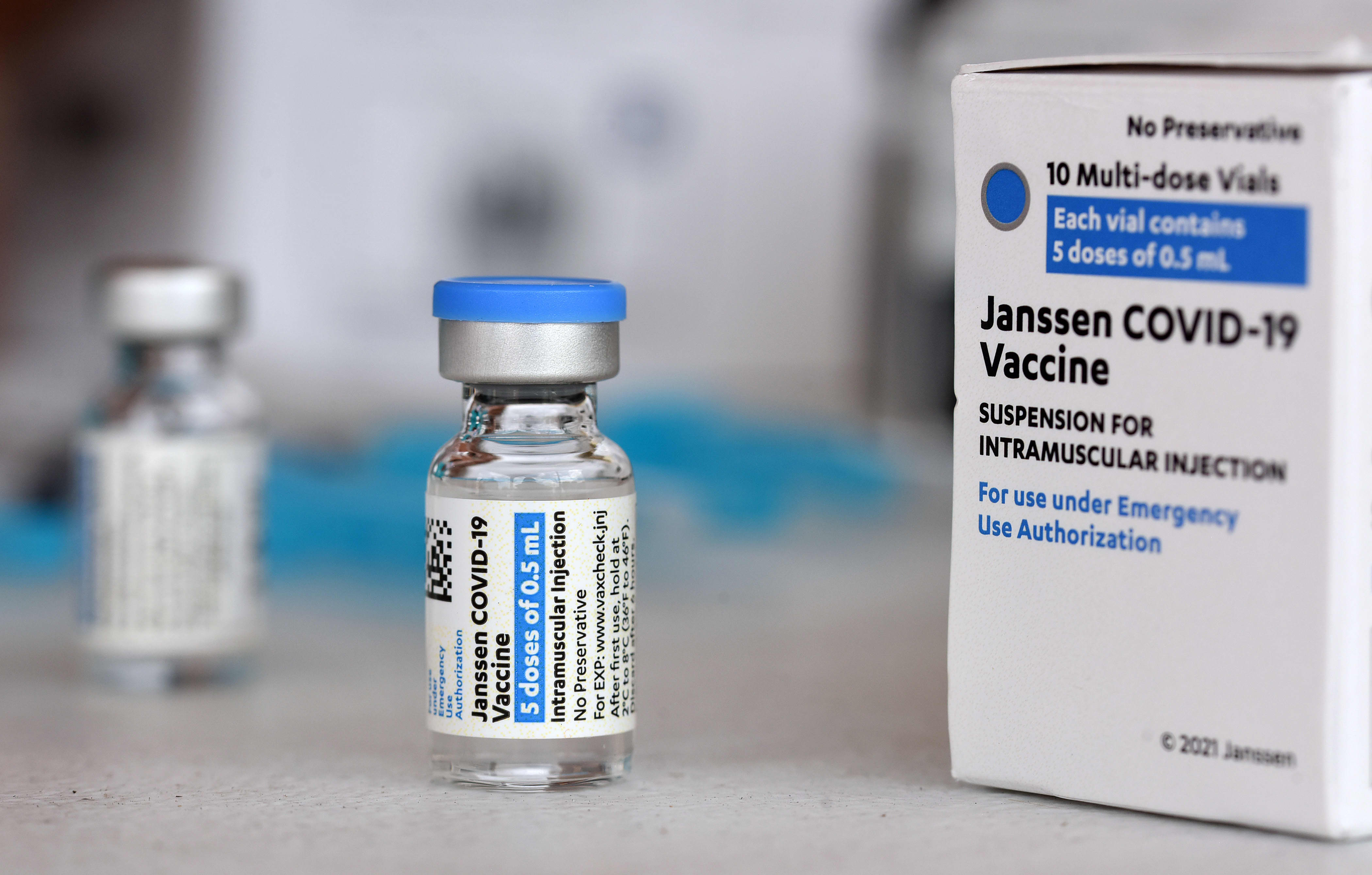
The Food and Drug Administration and Centers for Disease Control recommended on Tuesday that states temporarily halt using Johnson & Johnson’s Covid-19 vaccine due to “extremely rare” blood clotting disorders that occurred in six women who received the vaccine in the U.S.
For context, more than 6.8 million doses of the J&J vaccine have been administered in the United States to date.
Still, at least 25 states including Washington D.C. have paused distributing the J&J vaccine.
The pause is taken “out of an abundance of caution,” so that the healthcare system can prepare to identify, diagnose and treat the condition, according to the FDA.
But many who have received the single-dose vaccine or are set to receive it are wondering what it means for them or their loved ones.
Here’s what you need to know:
What is the clotting disorder
Six women, ages 18 to 48, developed rare cerebral venous sinus thrombosis, which are blood clots in combination with low levels of blood platelets. One of the recipients died and another is in critical condition.
Although the exact cause is unclear, experts believe that after some people get this type of vaccine, their body has an immune response that “leads to activation of the platelets and these extremely rare blood clots,” Dr. Peter Marks, director of the FDA Center for Biologics Evaluation and Research said in a joint media call Tuesday.
But remember, “This is a really rare event,” Dr. Anthony Fauci said during a White House press briefing on Tuesday. It typically occurs in somewhere between two and 14 people per million, Marks said.
Who should look for symptoms
So far, the side affect seems to appear within six to 13 days after vaccination. So those who got the vaccine in the last couple of weeks or days should be aware of any symptoms that arise, Dr. Anne Schuchat, principal deputy director of the CDC, said in a media call Tuesday.
But “for people who got the vaccine more than a month ago, their risk for them is very low, at this time,” she said.
The blood clots also all occurred in women under the age of 50, but the current group is too small to make generalizations about certain conditions or factors that would predispose people to the blood clots, Schuchat said. The Advisory Committee on Immunization Practices, the CDC committee that makes vaccine recommendations, is going to review the data and make recommendations.
J&J said in a statement that it is it is working closely with regulators to assess the data.
Side effects to watch for
The symptoms of this type of blood clot are very different from the mild flu-like symptoms that people experience a few days following vaccination — tiredness, headache, muscle pains, chills, fever and nausea — that many people experience in the days after getting the vaccine.
So what is relevant?
“If you receive the vaccine and develop severe headache, abdominal pain, leg pain or shortness of breath, you should contact your health care provider and seek medical treatment,” Schuchat said. (Blood clots can travel through your blood stream and become lodged, cutting off blood flow to important organs like the brain, heart or lungs.)
Symptoms of a low platelet count include things like easy bruising, nose bleeding and gum bleeding. (The low platelets with this complication make a typical clot treatment, the blood thinner heparin, “a mistake in this situation,” Fauci said Tuesday, “because it could be dangerous.”)
As mentioned, timing also matters: The blood clots have typically “occurred at least about a week after vaccination, and not longer than three weeks after vaccination, with a median of about nine days after vaccination,” Marks said.
What to do if you have an appointment to get the J&J vaccine
The FDA is working with state and federal governments to ensure that people who were scheduled to get the J&J vaccine can be rescheduled to get the Pfizer or Moderna vaccines, Jeff Zients, White House Covid-19 response coordinator on the J&J vaccine, said in a statement Tuesday.
Depending upon where you were scheduled to get the vaccine, the pharmacy, supermarket or state health authority may notify you directly to let you know if your shot is canceled or rescheduled.
However, this is based on a recommendation not a mandate, so some states and individual healthcare providers may choose to still give out the vaccine.
“If an individual healthcare provider has a conversation with an individual patient, and they determined that benefit for that individual patient is appropriate, we’re not going to stop that provider from administering the vaccine because it could be right,” Marks said. (For instance, for many people the risk of getting Covid may be more problematic than the risk for such a rare complication.)
What this means for the country’s vaccination rollout
This story has been updated to include a statement from Johnson & Johnson.




